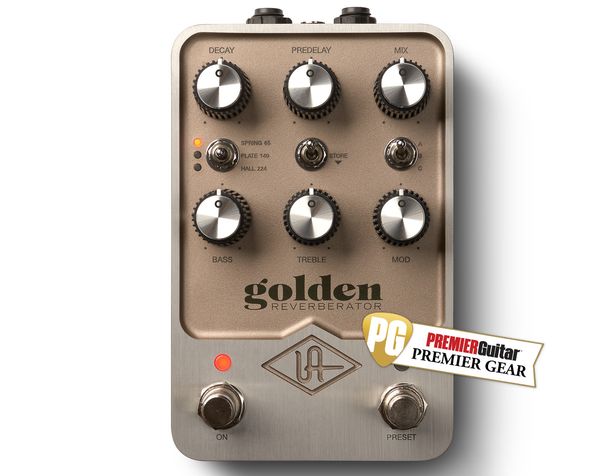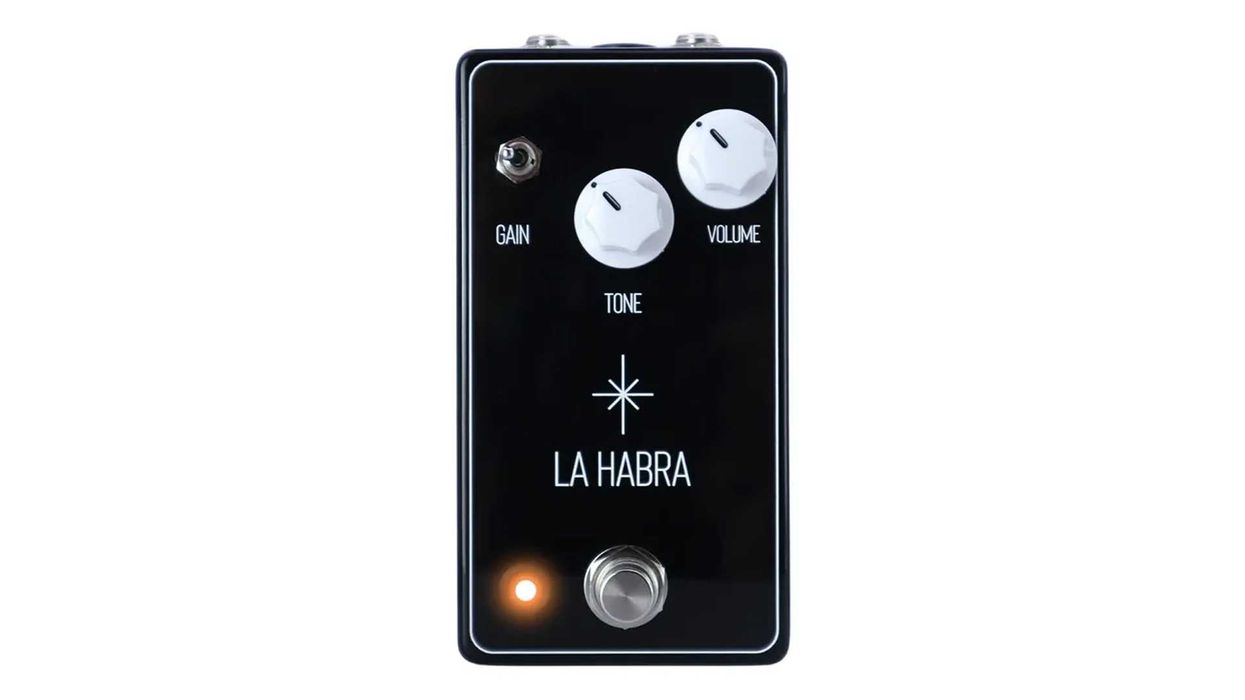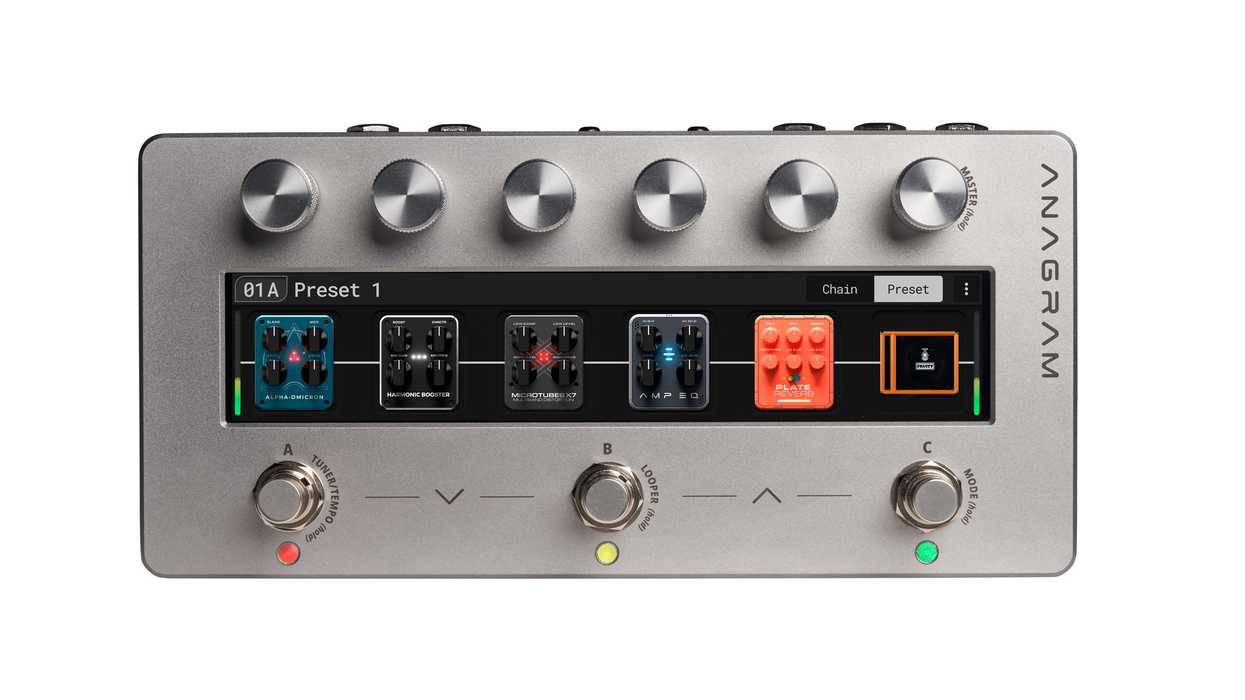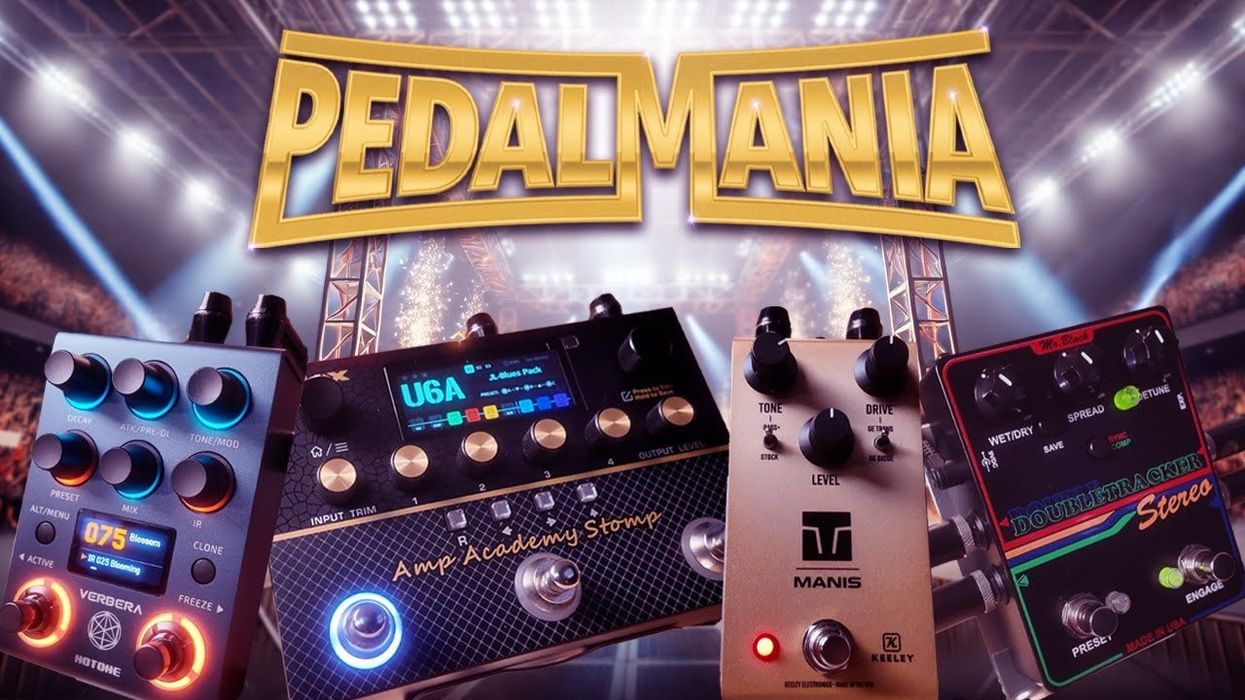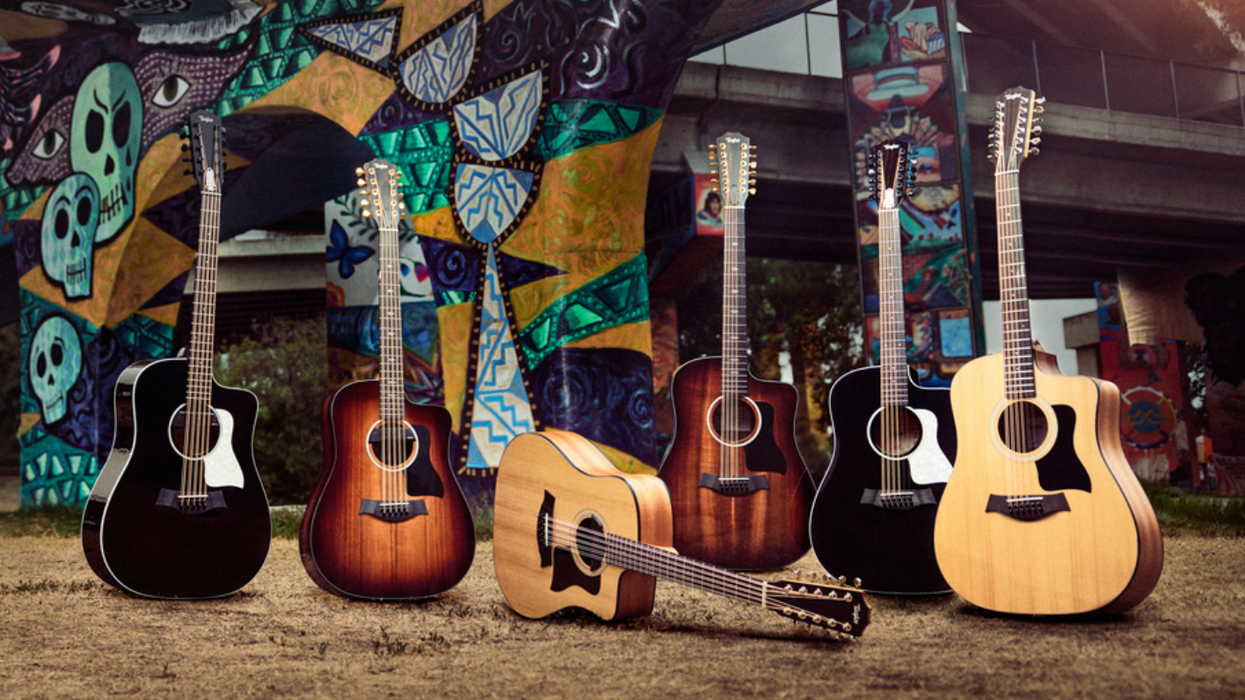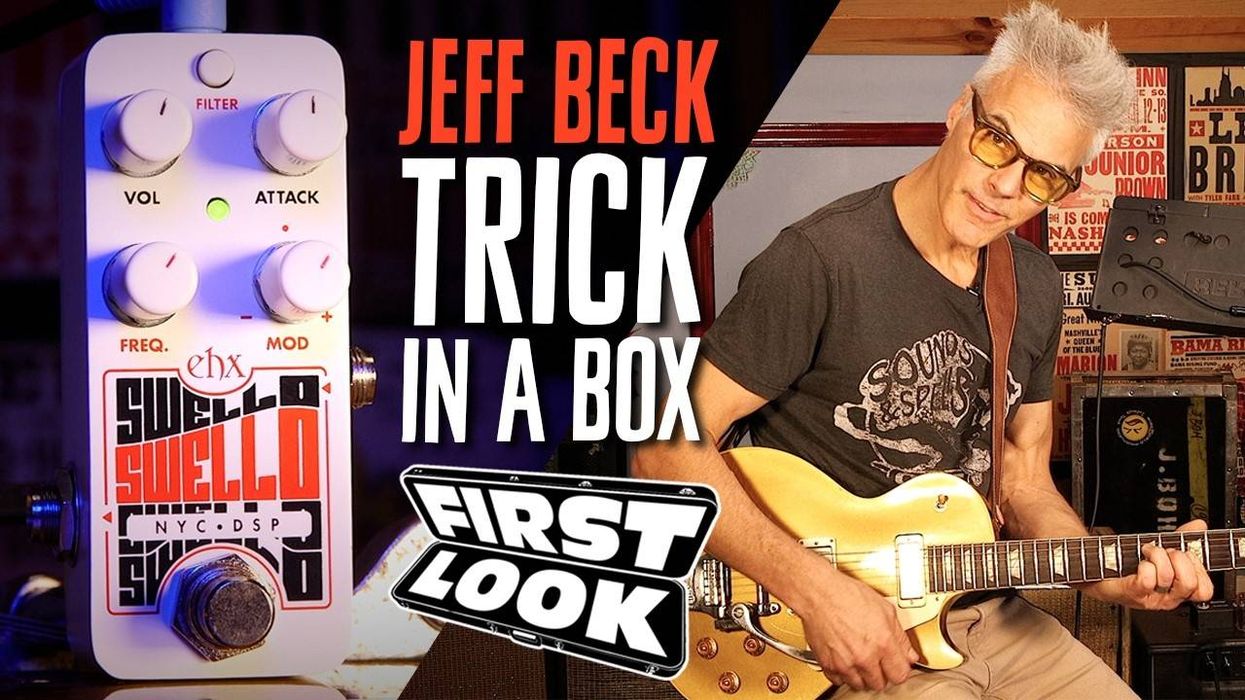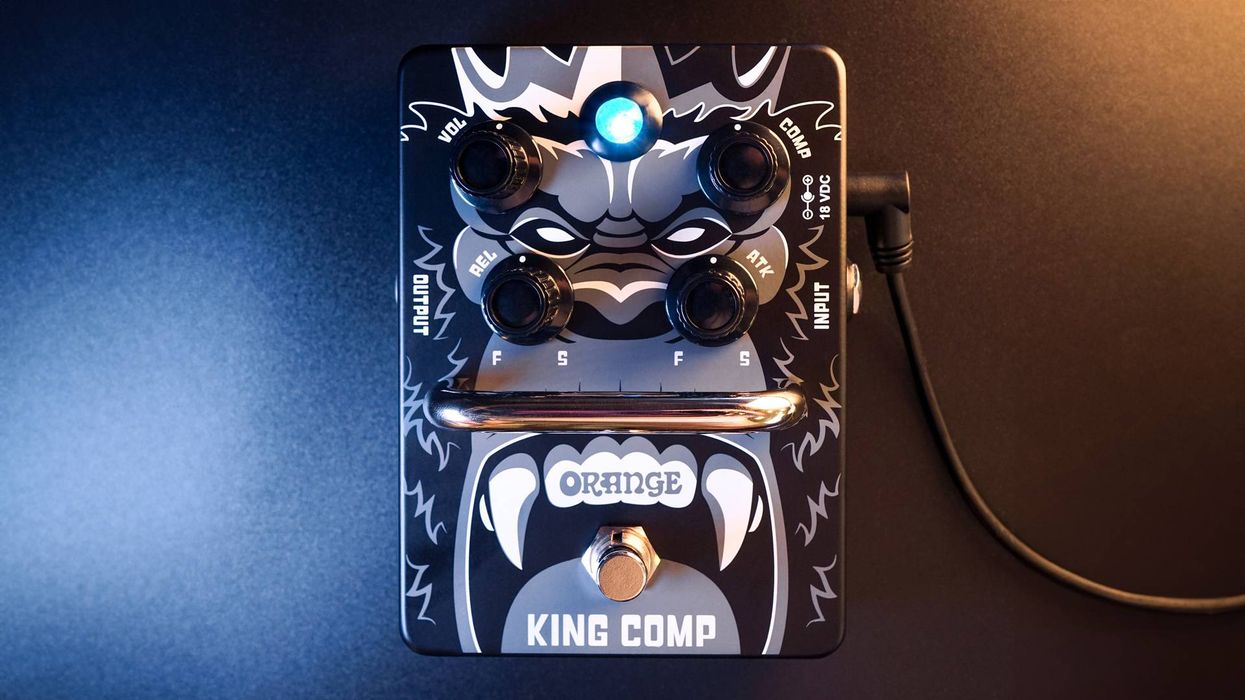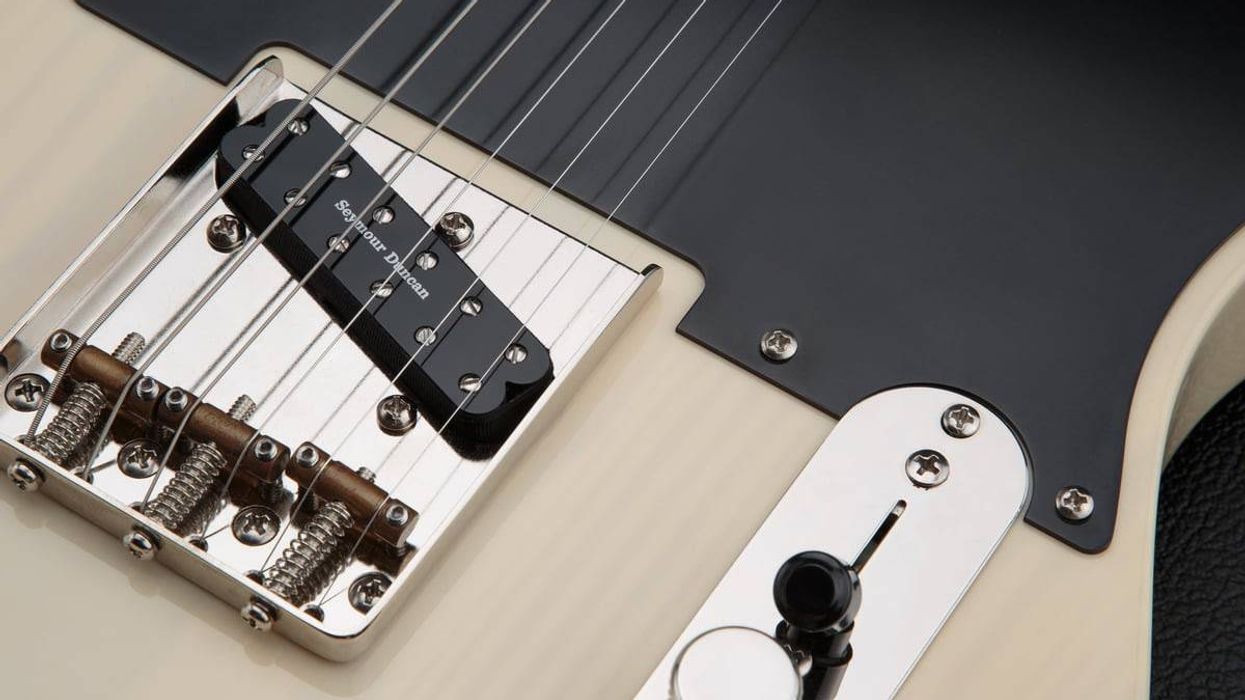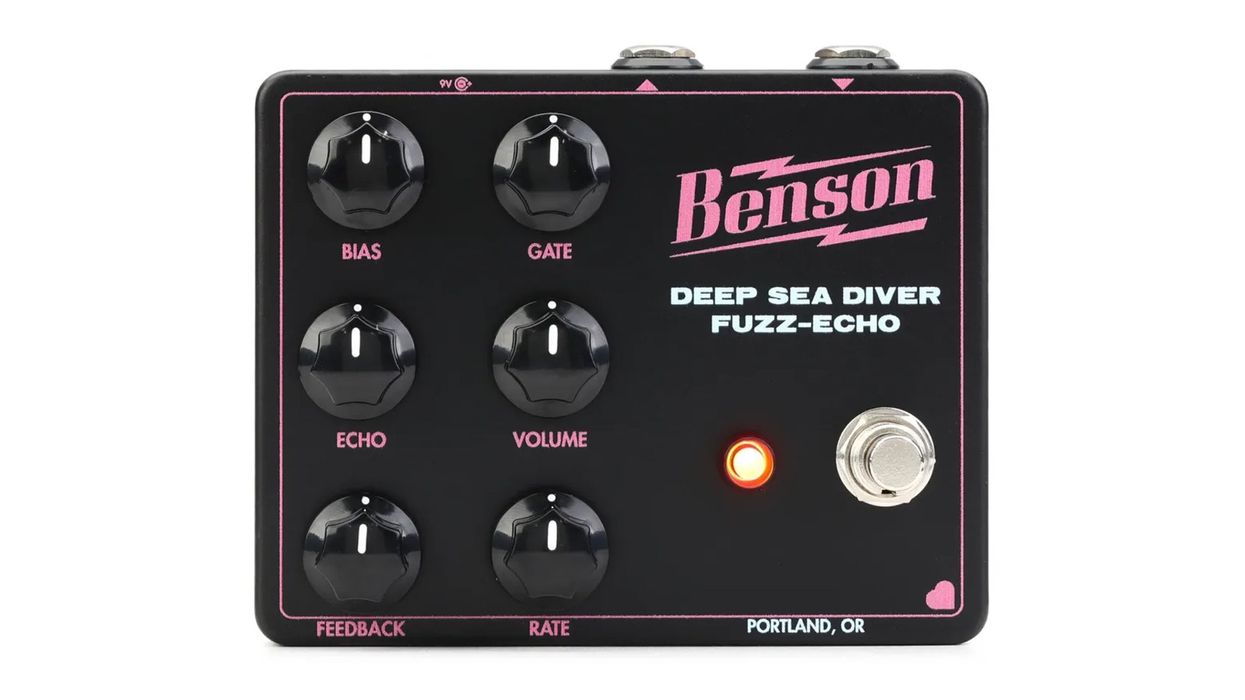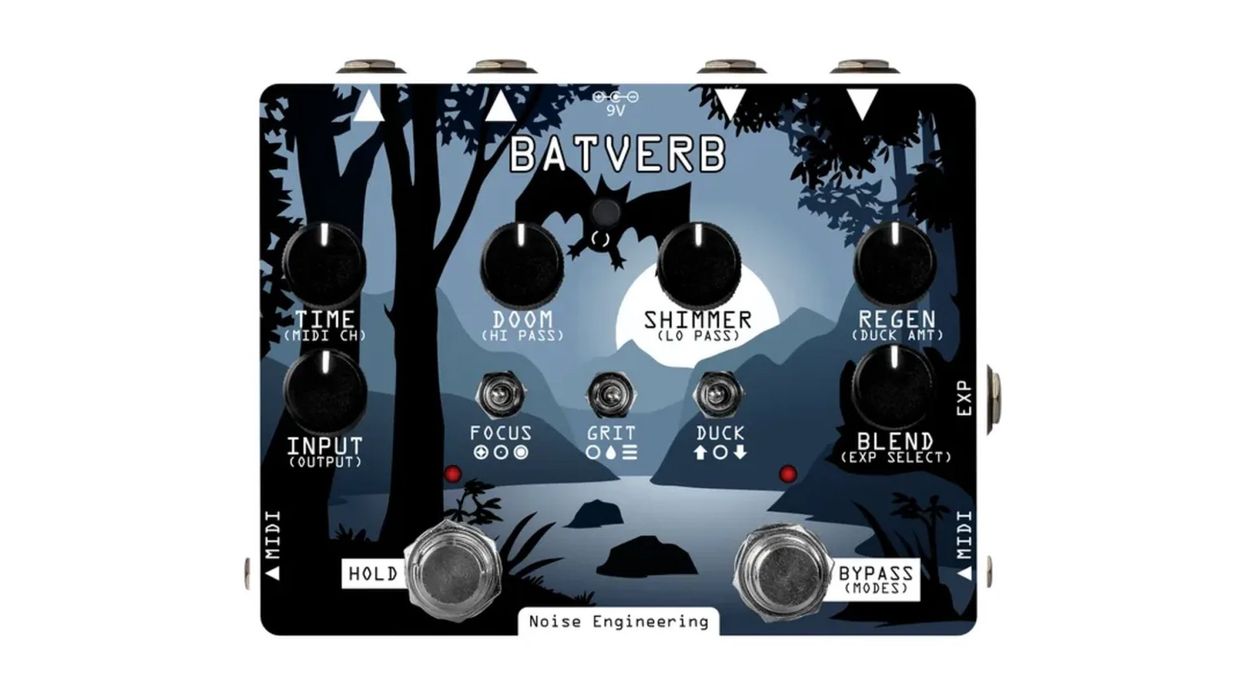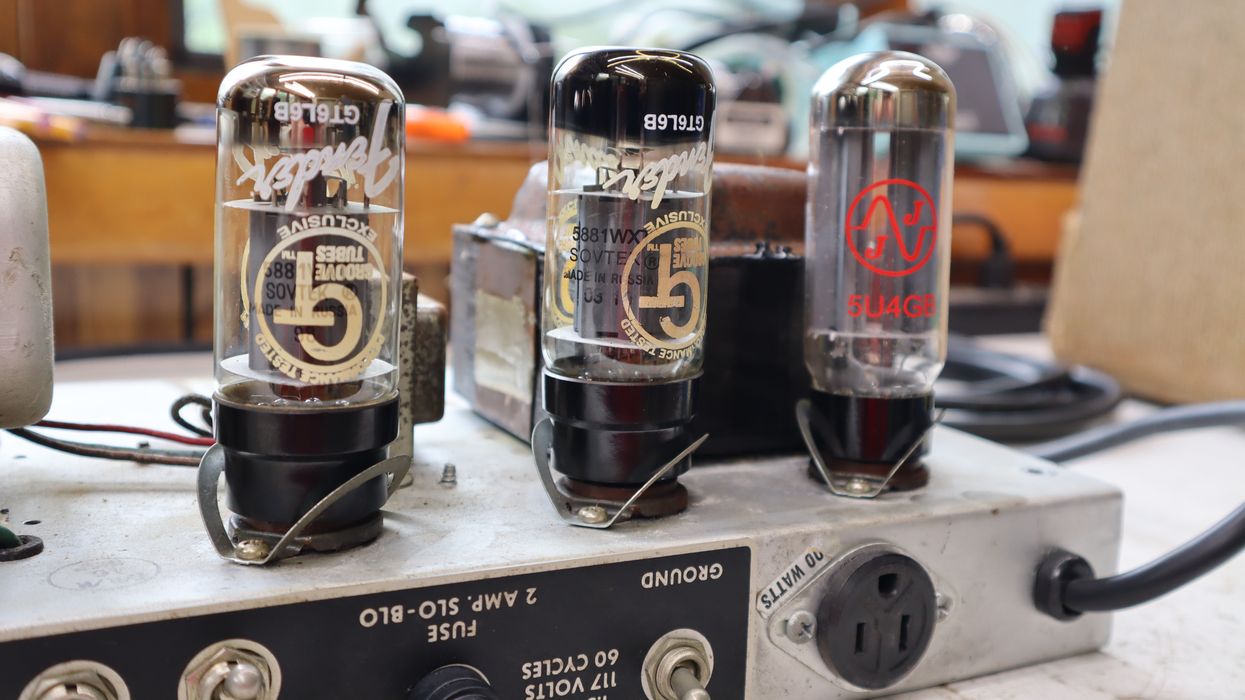Universal Audio's new UAFX guitar pedal line is genuinely newsworthy. The company's software emulations of vintage analog gear earn near-unanimous praise from producers and engineers. But until recently, UA software ran only on UA interfaces, such as the Apollo line of interface/preamp/convertors. That changed two years ago, with the release of the $1,299 OX Amp Top Box, a load box and speaker emulator incorporating several fine UA effects. And now UA effects are available in a relatively inexpensive stompbox format, thanks to the Astra Modulation Machine, Starlight Echo Station, and Golden Reverberator. Here, we focus on the reverb pedal.
El Dorado
The Golden Reverberator and its siblings share the same dimensions and control layout. The 5 ½" x 3 ½" x 1½" enclosure is slightly larger than a standard B-sized box. It has two footswitches, six knobs, and three mini-toggles. The audio and 9V DC jacks are top-mounted.
The pedal ships with nine reverb algorithms: three Fender-style spring simulations, clones of three analog EMT plates, and room and hall sounds from Lexicon's 224 unit. You can unlock three additional 224 effects after registration. (My audio clips include all 12 tones.) A four-core ARM processor does the heavy digital lifting.
Many reverb stompboxes sound decent enough, but they betray digital artifacts during quiet passages or long, exposed decays. Sometimes they have unwanted resonant frequencies that prevent the wet signal from meshing harmoniously with the dry tone. That's never the case here. Even the longest, quietest reverb tails maintain immersive warmth and detail. These are tones you'll want to bathe in.
Home Plate
The EMT and 224 algorithms sound nearly identical to their UA predecessors—and that's saying something! (I've been using UA's Apollo system for the better part of a decade, and I know these plug-ins well.) UA did an astounding job capturing the warmth and depth of an EMT plate, a huge and expensive hardware beast. In fact, UA based their models on the plates from the old Record Plant studios in Sausalito, California. I worked on many projects using those very plates, and, yes, the Golden Reverberator sounds and feels like a great hardware plate.
The pedal also conjures the sparkle and transparency of the Lexicon unit that helped define the sound of the 1980s. Meanwhile, the spring settings are something new from UA. Some of their amp-model plug-ins incorporate reverb, but their only previous standalone spring plug-in is a clone of the AKG BX20—a vintage outboard spring unit that sounds a little like a vintage-style Fender tank. The Golden Reverberator also nails that bouncy, percussive, and relatively trashy Fender sound.
Just Easy Enough
The controls are identical for all 12 algorithms. There are no confusing secondary functions. You can specify reverb length, pre-delay time, and wet/dry mix. There's bass and treble shelving EQ, plus a pot that adds pitch modulation to the wet signal. You choose algorithms via two mini-toggles. A third toggle lets you store a single sound in memory. That means you always have access to two reverb tones: a stored setting, and one reflecting the current control settings.
For the demo clips, I recorded a clean-toned passage and then re-amped it through the 12 algorithms—twice. You hear each algorithm with the effect in front of the amp, pedalboard-style. You also hear each setting as an effect send within my DAW. Naturally, the post-amp clips are more hi-fi, with greater frequency and dynamic range, plus lovely stereo imaging. These reveal the sheer quality of UA's processing. But the reverbs sound great upstream from the amp as well.
I dialed in "conventional" settings: spring reverb with no predelay or modulation, plate reverb with 20 ms or so of predelay, and Lexicon reverb with predelay and a touch of pitch modulation. But you could also get more creative with these models by, say, adding a long predelay and woozy pitch modulation to a straight spring sound.
The Verdict
The UAFX Golden Reverberator's tones stand head and shoulders above those of lower-priced stompboxes that employ relatively inexpensive "brick"-style processors or Spin FV-1 chips. But the $350-$500 price range includes fine-sounding reverb pedals from the likes of Strymon, Eventide, and Source Audio. Deciding which effect is "best" can be a subjective exercise.
But as someone who loves EMT 140 plate reverb above all other options, I can declare that the Golden Reverberator is now my favorite reverb pedal. Your tastes may differ—some rival algorithm may be closer to your ideal. But you can't deny that this pedal faithfully replicates three beloved retro reverbs. Factor in a lucid interface, solid construction, and a competitive price, and the Golden Reverberator is a total triumph.
